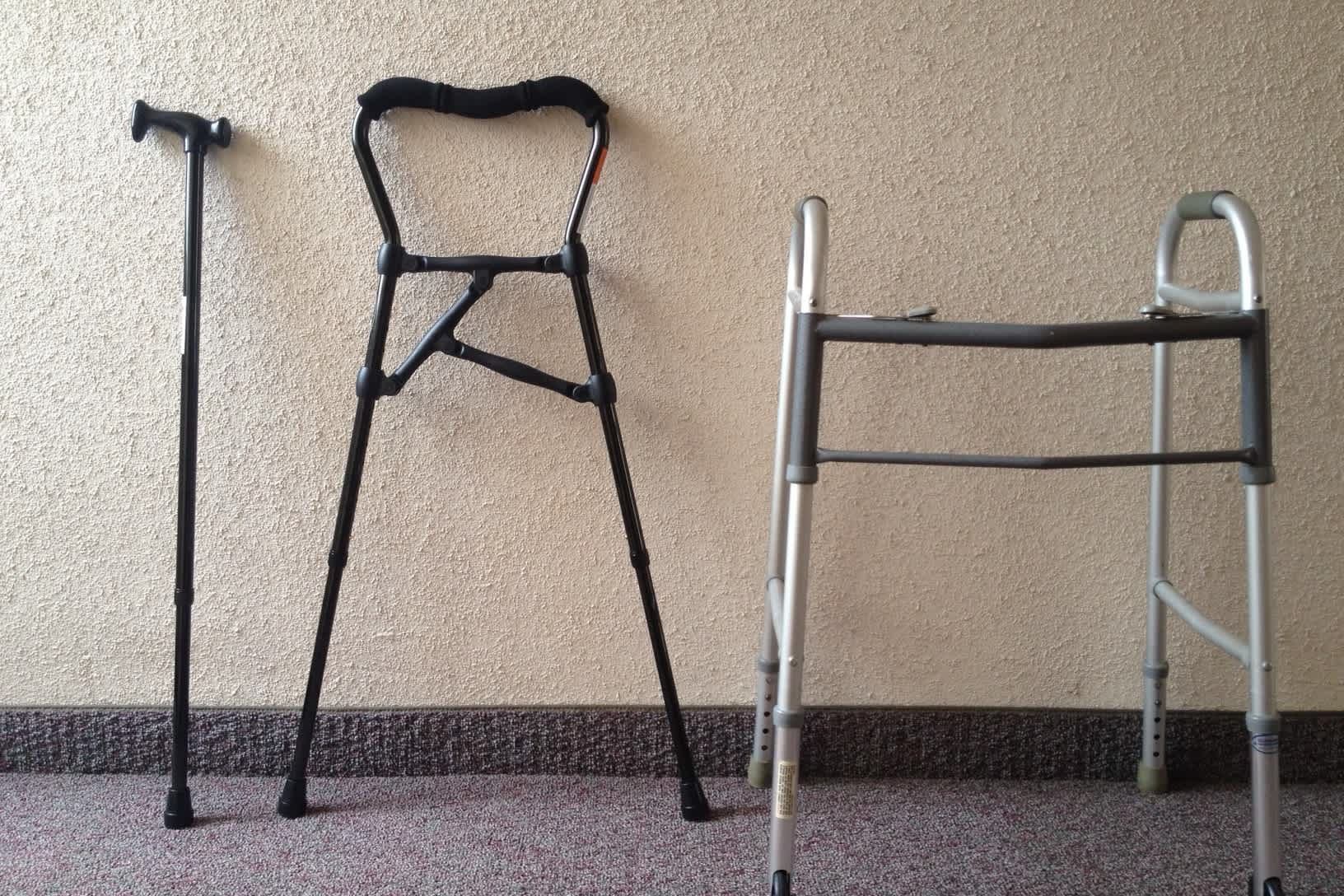GUIDES
Caring for Loved Ones With Parkinson’s Disease
Parkinson’s disease affects everyone differently. While there is no treatment for Parkinson’s, here are some tips for helping your loved one live with the disease.
Parkinson’s disease affects everyone differently. Whatever your loved one's needs are, some habits can work into any daily routine to help deal with the symptoms no matter what stage and live life more fully.
Get Physical: Regular Exercise
Moving and stretching the body every day will boost anyone’s health. When someone has Parkinson’s, exercise can help provide:
More flexibility
Better balance
Less anxiety and depression
Improved coordination
Added muscle strength
Talk to a doctor before having your loved one start any kind of new physical activity. The doctor may recommend you team up with a physical therapist to help find the best fitness fit. Here are a few activities worth trying:
Walking
Swimming or water aerobics
Gardening
Stretching
Dancing
Tai chi

Safety First: Fall Savvy
Balance problems can make falling a real concern when someone has Parkinson’s, so be smart. Here are some tips to keep in mind that will help anyone prone to falling:
Help them plant the heel first when taking a step.
Don’t move quickly.
Help them work to keep a straight posture when walking and look ahead instead of down.
Need to change directions? Try a U-turn instead of a pivot.
Try not to let them carry anything when walking.
One way only. No walking backward.
If your loved one falls despite taking these steps, consider using a cane, walker, or other device to help them move safely.

Support Sleeping Well
Sometimes, Parkinson’s can stand in the way of restful shut-eye. Parkinson's disease can cause sleep problems or abnormal dreams. Set up for success with keeping good “sleep hygiene” -- patterns that will raise the chance of getting the ZZZs needed:
Create a relaxing pre-bedtime routine and follow it every night.
Stick to a schedule: Go to bed and wake up at the same time every day.
Be light bright: Get plenty of natural light during the day. Avoid screens and keep bedrooms dark at night.
Avoid caffeine, alcohol, and exercise for at least 4 hours before bedtime.
Use beds for sleep only.
Keep bedrooms cool at night.
Make sure mattresses and pillows are comfortable and supportive.
Find pets another place to sleep -- no bed-sharing with animals.
Keep naps to 40 minutes or less.

Make Meals for Health
It’s common for Parkinson’s disease to come with things like bone thinning, dehydration, weight loss, and constipation. Keeping close tabs on nutrition can head off many of these symptoms.
Stock the pantry and plan weekly menus, remembering to:
Include a variety of whole grains, vegetables, and fruits every day.
Keep tabs on fat (especially the saturated kind).
Limit sugar, salt, and sodium.
Go easy on alcohol (be sure drinks don't interact with meds).
Keep it hydrated – at least 8 glasses of water a day.
Load up on foods packed with vitamin D, magnesium, vitamin K, and calcium for bone strength.

More than Medical: Expand Care Activities
The doctor is the first line of defense for treating Parkinson’s symptoms. Many other specialists and therapies can help. Think about expanding care to include:
Physical therapy to help with movement.
Occupational therapy makes daily activities easier.
Speech therapy to improve speaking and swallowing.
Music, art, or pet therapy to improve mood and relaxation.
Acupuncture to help with pain.
Massage to ease muscle tension.

Get Smart: Read Up on Improving Quality of Life
The most important step is to seek help right from the beginning. Education and support will help you deal with any challenges ahead. Taking action early will help you understand and deal with the many effects of the disease. A counselor or mental health care provider can design a treatment plan to meet specific needs. The goal is to help regain a sense of control over life and improve quality of life.
Other steps you can take include the following.
Find out as much as you can about the condition.
Talk to your friends and family about it. Don't isolate them. They will want to be involved in helping.
Keep your loved one doing things they enjoy.
Don’t be afraid to ask a doctor, nurse, or other health care provider to repeat any instructions or medical terms that you don't understand or remember. They should always be available to answer your questions and address your concerns.
Make use of resources and support services offered by your hospital and in your community.
Learn to manage stress. This will help you maintain a positive physical, emotional, and spiritual outlook. Being stressed out will only make the situation worse. You should try to organize a daily routine that will reduce stress and provide downtime for you, your loved one, and your family members.

Seek Support From Others
Friends and family can be a great source of help when you’re dealing with Parkinson’s. But sometimes, it’s a relief to be able to relate to someone who knows what it’s like to deal with the disease. In-person or online support groups can offer comfort and practical advice. They can also help you feel less alone. Ask your doctor, nurse, or social worker to suggest local or online groups you and your loved one can join.
Sometimes, problems are better addressed in a one-on-one atmosphere. By participating in individual counseling, your loved one may be more able to express sensitive or private feelings about their condition and its impact on their lifestyle and relationships.
It’s common to feel depressed and anxious, too. Check in with a mental health professional if they have a hard time enjoying life the way you used to – or if taking care of your loved one is getting to be too much.

Related Resources
American Parkinson Disease Association
The American Parkinson Disease Association (APDA) is a nationwide grassroots network dedicated to fighting Parkinson’s disease (PD) and works tirelessly to help the approximately one million with PD in the United States live life to the fullest in the face of this chronic, neurological disorder. Founded in 1961, APDA has raised and invested more than $252 million to provide outstanding patient services and educational programs, elevate public awareness about the disease, and support research designed to unlock the mysteries of PD and ultimately put an end to this disease. To join us in the fight against PD and to learn more about the support APDA provides nationally through our network of Chapters and Information & Referral (I&R) Centers, as well as our national Research Program and Centers for Advanced Research, please visit us at www.apdaparkinson.org.
The Parkinson's Foundation
The Parkinson’s Foundation was formed by the merger of the National Parkinson Foundation (NPF) and the Parkinson’s Disease Foundation (PDF), both established in 1957, with offices in New York and Miami. In June 2017, the Foundation marked the 200th anniversary of the publication of, “An Essay on the Shaking Palsy,” by James Parkinson and the 60th anniversary of the Parkinson’s Foundation.
© 2024 TenderCo Inc. All rights reserved.